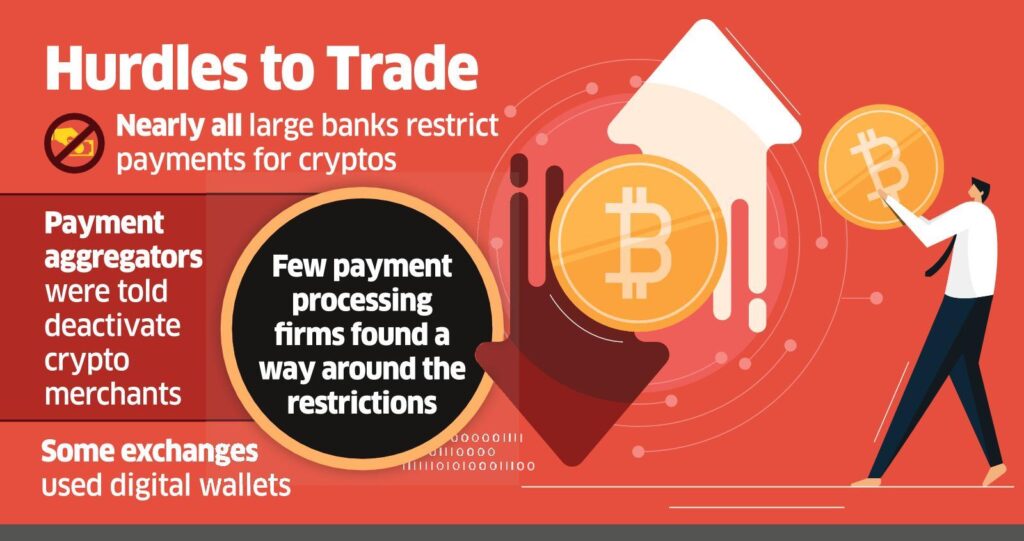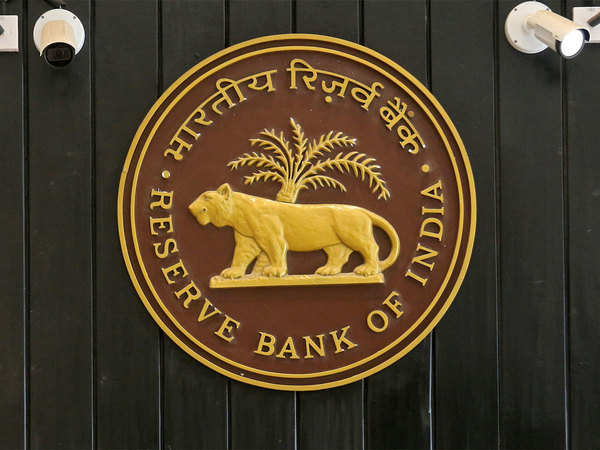
Kotak, which was one of the few Indian banking firms to embrace cryptocurrency, is reconsidering its position. Two people familiar with the matter told reports that the private sector bank has stopped – at least temporarily – processing payments for exchanges with CoinSwitch Kuber, a prominent crypto middleman. It’s unclear what prompted the call, but sources say Kotak has opted to take a break until the crypto dust settles.
“There hasn’t been any new Reserve Bank of India guidance advising banks to avoid cryptos. However, senior supervisory officials (at the RBI) are advising certain banks to be cautious about cryptos until regulatory and legal clarity is achieved “a senior official from another bank remarked
The unregulated business may suffer a setback as a result of Kotak’s stance. It comes after MobiKwik, a digital wallet, reportedly cut ties with crypto-related payments in early April.
The Difficult Stage

With practically all banks closing their doors to the crypto business, MobiKwik had emerged as the sole payment option for the majority of crypto traders and several crypto exchanges.
Because it had been conducting business with CoinSwitch Kuber for a few months, various crypto exchanges were intending to approach Kotak for payment processing.
“They will now have to look for an alternative,” said a senior official with one of the bourses. “And clearly, they are running out of choices. Even Kotak was selective. While it was processing payments for CoinSwitch trades, the bank’s talks with a large exchange fell through… This is the toughest phase for the crypto industry in India.”
Officials from Kotak did not react to a request for comment on the bank’s decision, while a spokeswoman for CoinSwitch Kuber did not answer to a request for comment from a channel.
Payment options for cryptocurrency transactions are being stifled at a time when the industry is contending with an oppressive tax structure that makes crypto transactions worse than gambling. Unlike a gambler, a crypto trader cannot deduct losses from winnings to reduce tax liability. Aside from the 30% tax on earnings from cryptocurrency trades, there is a 1% tax deducted at source on sale proceeds (irrespective of whether money is made on the trade).
“Crypto exchanges are being pushed to a corner. Some of them are even thinking whether they should move court, even though that would be the last option. They may soon write to the RBI, ministry and Indian Banks’ Association. But they doubt they would respond,” said an industry person.
Careful Stepping

Despite the government’s determination to tax the business, banks have distanced themselves from cryptos, with senior RBI officials openly and repeatedly expressing significant doubts about them.
Many banks are concerned that they may become unknowingly involved in money laundering operations in which cryptos are used to send (or receive) funds to (or from) foreign parties while avoiding the banking system and exchange control restrictions.
“It’s impossible for a regulator to track if someone transfers cryptos from an overseas wallet to the private wallet of another crypto trader in India… But these issues on exchange control will not be sorted out till we have regulations on cryptos,” said a banker. “Given the nature of cryptos, it’s very difficult to address all the issues. We believe neither Sebi (Securities and Exchange Board of India) nor RBI has, so far, agreed to be the regulator for the cryptocurrency industry.”
Following a March 2020 Supreme Court judgement that overturned the central bank’s mandate to banks to avoid allowing clients to utilise bank accounts to acquire or trade cryptos, RBI is unable to legally direct banks. However, most banks have started barring crypto-related payments since early-2021, having read the RBI’s thoughts.
In April 2021, ICICI, India’s second largest bank, instructed payment gateway operators to deactivate ICICI netbanking for merchants who were directly or indirectly involved in buying or selling cryptos.
The major local lender, State Bank of India, barred crypto bourses from receiving funds on its UPI network a few months later. The Unified Payment Interface, or UPI, allows all bank account holders to send and receive money from their cellphones without having to input their bank account details or their netbanking user ID and password.
Around the same time, some large private banks began requiring customers remitting cash for foreign investments under the RBI’s liberalised remittance scheme to sign a statement stating that the funds would not be used to trade on cryptocurrencies.





